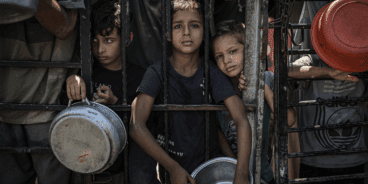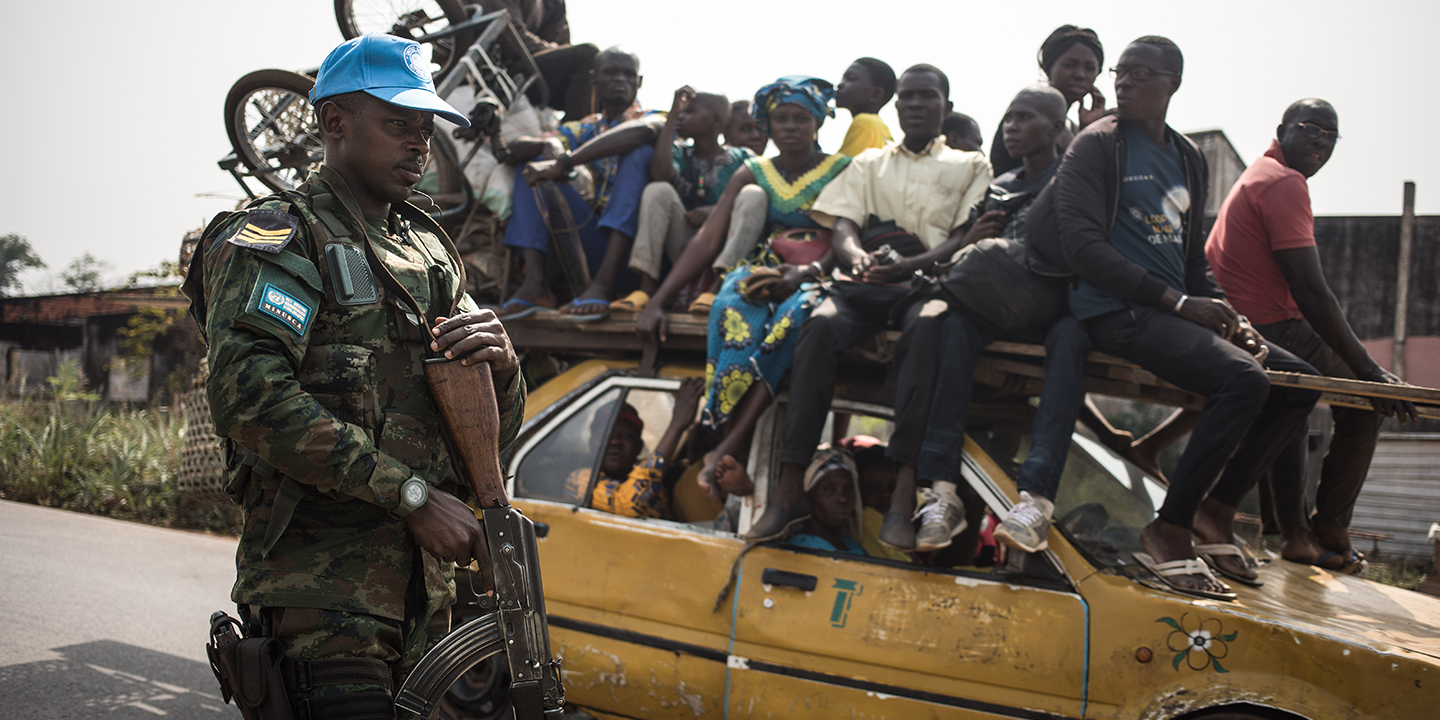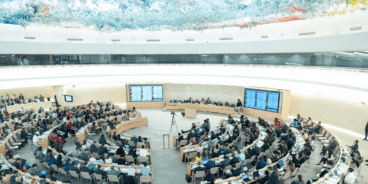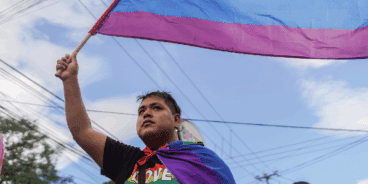

Atrocity Alert No. 237: Central African Republic, Ethiopia and China
Atrocity Alert is a weekly publication by the Global Centre for the Responsibility to Protect highlighting situations where populations are at risk of, or are enduring, mass atrocity crimes.
Capital of the Central African Republic blockaded by armed groups
On Thursday, 21 January, the government of the Central African Republic (CAR) declared a state of emergency after an alliance of armed groups seized control of several national highways and blockaded the capital, Bangui. The alliance of anti-balaka militias and ex-Séléka rebels, known as the Coalition of Patriots for Change (CPC), poses a grave threat to civilians, humanitarian workers and UN personnel. Mankeur Ndiaye, head of the UN peacekeeping mission in CAR (MINUSCA), has made an urgent appeal to the UN Security Council (UNSC) for more troops, noting that the “new security situation” is testing MINUSCA’s ability to protect civilians and deliver essential food and medical supplies.
Attacks by the CPC have been ongoing since CAR’s 27 December general elections, which saw incumbent President Faustin-Archange Touadéra reelected. The UN Independent Expert on the situation of human rights in CAR has reported on the alleged recruitment and use of children by the CPC and claims that many Central Africans have been victims of violence, torture or death threats simply for exercising their right to vote. Seven MINUSCA peacekeepers have also been killed in recent weeks while trying to prevent the CPC from attacking the capital and overturning the election result.
The UN Special Advisers on the Prevention of Genocide and the Responsibility to Protect, Alice Wairimu Nderitu and Karen Smith, have expressed their concern over the deteriorating situation in CAR. The Special Advisers said that, “we strongly remind those behind these attacks that their acts constitute atrocity crimes, and those with highest responsibility, including political actors will be held accountable.”
The escalating violence has exacerbated what is already one of the world’s worst humanitarian crises. More than 84,000 Central Africans have fled to neighboring countries since December, while 100,000 people remain internally displaced. Most of the country outside Bangui is controlled by the CPC and other armed groups.
Armed groups that are part of the CPC have a history of perpetrating atrocities, including killing civilians, rape, sexual slavery and deliberately destroying civilian infrastructure. On 24 January CAR authorities surrendered the first Séléka suspect, Mahamat Said Abdel Kani, to face charges at the International Criminal Court (ICC). Said is suspected of war crimes and crimes against humanity allegedly committed as a Séléka commander in Bangui in 2013. While his transfer to the ICC is an important step towards justice, many perpetrators of past atrocities continue to operate in command positions inside the CPC.
Christine Caldera, Research Analyst at the Global Centre for the Responsibility to Protect, said that, “history shows us that if these predatory armed groups are allowed to enter Bangui, atrocities will almost certainly be committed. The UNSC should take urgent action to reinforce MINUSCA and ensure that it has the military capacity to protect civilians and defend Bangui from further attack.”
UN reports on widespread sexual violence in Ethiopia’s Tigray conflict
On 21 January the UN Special Representative on Sexual Violence in Conflict, Pramila Patten, released a statement detailing grave allegations of widespread sexual violence and gender-based violence targeting women and girls in the Tigray region of Ethiopia.
Special Representative Patten’s statement details a “high number of alleged rapes” in the regional capital of Mekelle, as well as reports of civilians being forced by armed men to rape their own family members. Members of armed groups also reportedly forced women to have sex in exchange for basic commodities. The Special Representative highlighted how insecurity and armed conflict in the region has endangered all civilians and noted a growing number of reports of sexual violence being perpetrated against refugees.
The Special Representative called upon all parties to the conflict in Tigray to “commit to a zero-tolerance policy for crimes of sexual violence, in line with their respective obligations under international humanitarian and human rights law.” Patten specifically urged Ethiopian Prime Minister Abiy Ahmed to “protect all civilians from sexual and other violence, regardless of their ethnic origin.”
On 4 November Ethiopia’s national government launched a military offensive against the Tigray People’s Liberation Front (TPLF), following months of political tensions between Tigray’s regional government and federal authorities. Despite Prime Minister Abiy announcing a formal end to the Tigray conflict, the UN continues to report fighting across the region. More than 4.5 million people in Tigray – 75 percent of the population – are in need of emergency food assistance, with 2.2 million internally displaced. A further 59,000 people have fled to Sudan. Reports also continue to emerge of ethnic targeting, looting and killings committed by Eritrean soldiers operating in Tigray in alliance with federal forces.
Conflict-related sexual violence and gender-based violence are illegal under international law and may constitute war crimes and crimes against humanity.
Pressure grows for China to end genocide in Xinjiang
On 19 January the United States became the first government in the world to formally declare that the People’s Republic of China is committing genocide and crimes against humanity against the ethnic Uyghur (or Uighur) population and members of other Muslim minority groups. The US government’s public proclamation that genocide was being committed in the Xinjiang region followed numerous economic measures, including a 13 January decision to ban all cotton and tomato products from entering the US if they are produced in Xinjiang.
On 12 January the governments of Canada and the United Kingdom also adopted measures to prevent products made with forced labor in Xinjiang from entering their countries and global supply chains. Meanwhile, at the UN General Assembly 39 governments have called for China to allow independent observers to enter Xinjiang and visit facilities where approximately one million Uyghurs and other minorities continue to be arbitrarily detained.
Under customary international law and the Rome Statute of the International Criminal Court, the widespread or systematic persecution of Uyghurs on religious, cultural, ethnic and gender grounds; the large-scale detention program; abuse of detainees; and forced sterilization may constitute crimes against humanity. The Chinese government also appears to be perpetrating at least four acts prohibited under Article 2 of the Genocide Convention, including forcibly imposing measures intended to prevent births within the Uyghur population. Authorities have also engaged in the systematic destruction of Uyghur cultural heritage, demolishing historic shrines, cemeteries and pilgrimage sites. Approximately 16,000 mosques have been destroyed or damaged as a result of government policies.
“Other governments should formally recognize that China is committing genocide and crimes against humanity in Xinjiang and ban all products made with forced labor by persecuted people from entering their countries,” said Nadira Kourt, Program Manager at the Global Centre for the Responsibility to Protect. “At the Human Rights Council, all UN member states should also support the establishment of an independent mechanism to investigate the situation in Xinjiang. The Chinese government must know that the world is watching.”
Related Content


Letter to UN Human Rights Council members on atrocity prevention priorities at the Council’s 60th session
